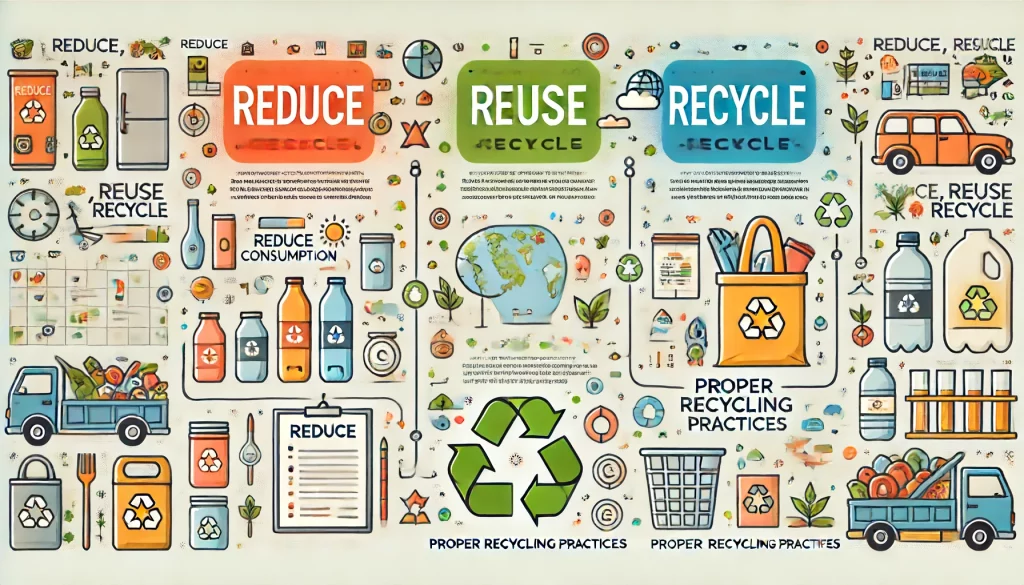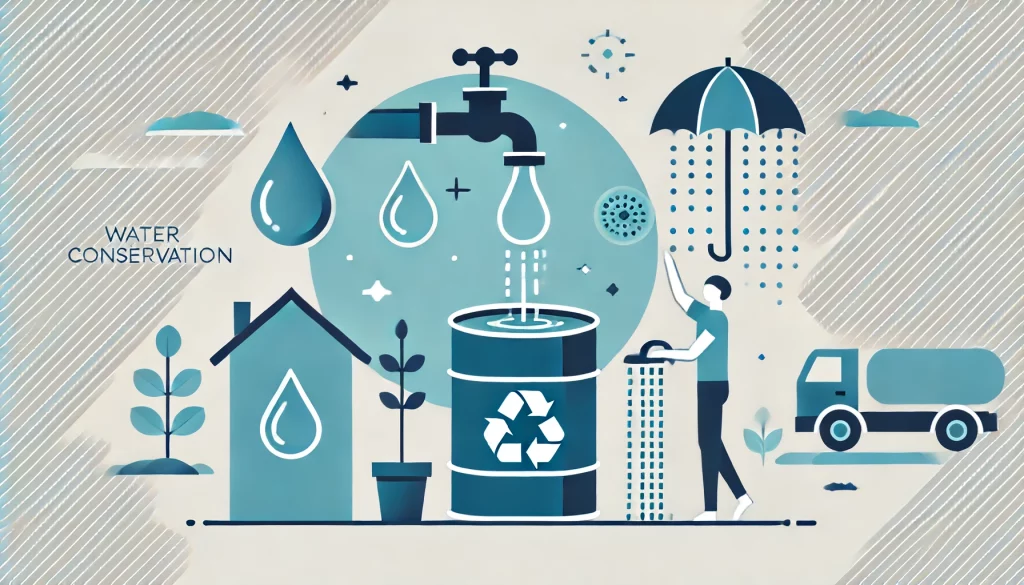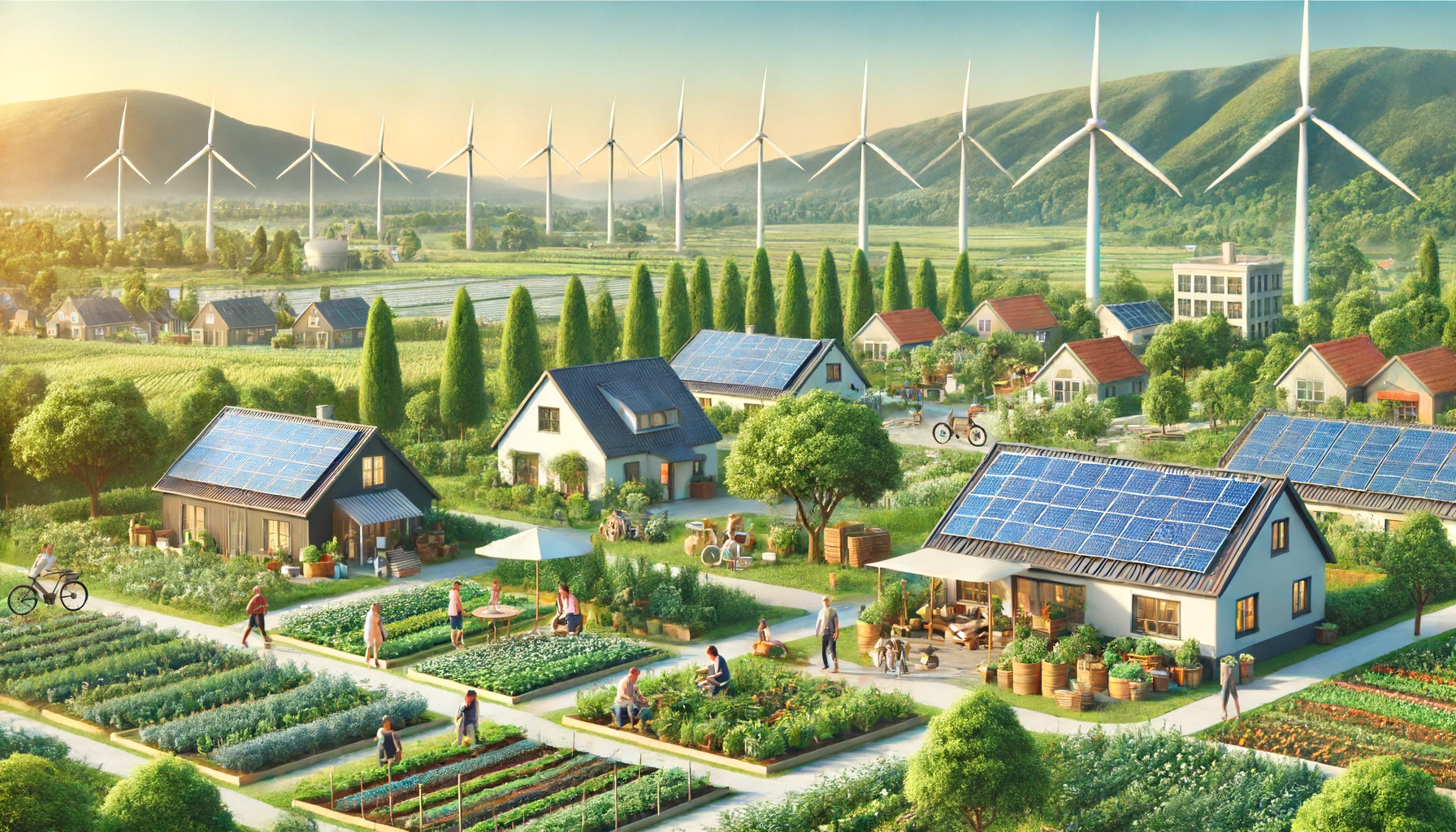Introduction
The year 2024 presents both challenges and opportunities in our ongoing efforts to protect the environment. With climate change accelerating, biodiversity under threat, and resources dwindling, it is crucial for individuals and communities to take actionable steps toward sustainability. This article explores effective ways to preserve our planet, focusing on renewable energy, waste reduction, sustainable transportation, water conservation, biodiversity protection, and advocacy for environmental policies.
1. Embrace Renewable Energy Sources
Transitioning to renewable energy sources like solar, wind, and hydro power is one of the most impactful ways to reduce our carbon footprint. Renewable energy technologies have advanced significantly, making them more accessible and affordable for both individuals and businesses. Governments worldwide are offering incentives and subsidies to encourage the adoption of these clean energy sources. For example, the U.S. government provides tax credits for installing solar panels and wind turbines, significantly lowering the initial investment costs (The Nature Conservancy) (Environment America). Embracing renewable energy not only helps in reducing greenhouse gas emissions but also fosters energy independence and creates green jobs, contributing to a sustainable economy.
2. Reduce, Reuse, Recycle
The mantra of “reduce, reuse, recycle” is more relevant than ever. Reducing consumption involves mindful purchasing decisions, opting for products with minimal packaging, and choosing quality over quantity. Reusing items extends their lifecycle, reducing the need for new resources. Creative reusing can include repurposing jars as storage containers or transforming old clothes into cleaning rags. Effective recycling involves separating waste properly and participating in community recycling programs (Gone Greenish) (Earth Reminder). Many communities now offer curbside recycling services and have facilities that accept a wide range of materials, from electronics to plastics. By committing to these practices, we can significantly reduce waste and conserve natural resources.

3. Sustainable Transportation
Transportation is a major contributor to greenhouse gas emissions, but there are sustainable alternatives that can make a significant difference. Electric vehicles (EVs) are becoming increasingly popular as their technology improves and charging infrastructure expands. Public transportation and carpooling are also effective ways to reduce the number of vehicles on the road. Encouraging walking and cycling not only benefits the environment but also improves personal health. Innovations like hydrogen fuel cells and advancements in battery technology are promising developments in the quest for sustainable transportation (The Nature Conservancy) (Earth.Org). Cities worldwide are investing in electric bus fleets and expanding bike-sharing programs to support these greener modes of travel.
4. Support Sustainable Agriculture
Agriculture has a profound impact on the environment, but sustainable practices can mitigate these effects. Organic farming, which avoids synthetic pesticides and fertilizers, promotes biodiversity and soil health. Supporting local farmers by purchasing locally grown produce reduces the carbon footprint associated with transportation. Reducing food waste is another critical aspect; initiatives like composting organic waste and planning meals to minimize leftovers can make a significant difference (Environment America) (Gone Greenish). Urban farming and community gardens are gaining popularity, allowing city dwellers to grow their own food and contribute to local food security. Supporting brands and products that adhere to sustainable practices further encourages the shift toward eco-friendly agriculture.
5. Water Conservation
Water is a precious resource, and conserving it is essential for maintaining natural ecosystems and ensuring a sustainable future. Efficient irrigation techniques, such as drip irrigation, can significantly reduce water wastage in agriculture. At home, simple practices like fixing leaks, using water-saving fixtures, and collecting rainwater can contribute to water conservation (Gone Greenish) (Earth Reminder). Community initiatives, such as local clean-ups of water bodies and advocating for policies that protect water resources, play a crucial role. Innovative technologies, such as greywater recycling systems that reuse water from sinks and showers for irrigation, are also becoming more common and can greatly reduce water consumption.

6. Protecting Biodiversity
Biodiversity is vital for ecosystem stability and human well-being. Preserving wildlife and natural habitats involves protecting endangered species and supporting conservation efforts. Individuals can contribute by creating wildlife-friendly spaces in their gardens, supporting organizations dedicated to conservation, and reducing their use of products that harm natural habitats (Environment America) (Earth Reminder). Policies that protect critical habitats, such as the establishment of national parks and nature reserves, are essential. Combatting deforestation through sustainable logging practices and reforestation projects helps maintain forest ecosystems, which are crucial for absorbing carbon dioxide and supporting diverse species.
7. Advocate for Environmental Policies
Individual actions are important, but systemic change is essential for large-scale environmental preservation. Advocating for policies that support renewable energy, sustainable agriculture, and conservation efforts is crucial. Getting involved in environmental activism, participating in local government meetings, and supporting eco-friendly legislation can drive significant change (The Nature Conservancy) (Earth.Org). Educating others about the importance of these issues and encouraging them to vote for candidates who prioritize the environment can also make a substantial impact. Successful environmental policies, such as those that limit emissions or protect water sources, often start with grassroots advocacy and public support.
Conclusion
Preserving our planet requires a collective effort where every action, no matter how small, contributes to the larger goal. By embracing renewable energy, reducing waste, adopting sustainable transportation, conserving water, protecting biodiversity, and advocating for environmental policies, we can make 2024 a pivotal year in the fight against climate change. It is our responsibility to take these steps and encourage others to do the same, ensuring a sustainable future for generations to come.
FAQs: Top Ways to Preserve Our Planet in 2024
1. What are the most effective renewable energy sources for individual households?
For individual households, solar energy and wind energy are the most effective renewable energy sources. Solar panels can be installed on rooftops to capture sunlight and convert it into electricity. Wind turbines, although more commonly used on a larger scale, can also be installed for personal use if the property size and local regulations permit. Both options have seen significant advancements in technology, making them more efficient and affordable. Additionally, many governments offer incentives and subsidies to offset the initial installation costs (The Nature Conservancy) (Environment America).
2. How can I reduce my plastic waste on a daily basis?
Reducing plastic waste can be achieved through several practical steps:
- Use reusable shopping bags instead of plastic ones.
- Opt for products with minimal or no plastic packaging.
- Carry a reusable water bottle and coffee cup.
- Avoid single-use plastics like straws, cutlery, and plates.
- Participate in local recycling programs to ensure plastic is disposed of properly (Earth Reminder) (Earth.Org). These small changes in daily habits can significantly reduce the amount of plastic waste generated.
3. What are some water conservation techniques I can implement at home?
There are several effective water conservation techniques you can implement at home:
- Fix any leaks in faucets and pipes to prevent water wastage.
- Install water-saving fixtures such as low-flow showerheads and dual-flush toilets.
- Collect rainwater using barrels and use it for gardening.
- Use efficient irrigation methods like drip irrigation for outdoor plants.
- Only run dishwashers and washing machines with full loads (Gone Greenish) (Earth Reminder). By adopting these practices, you can significantly reduce your water consumption and contribute to overall water conservation efforts.
4. How can I get involved in environmental advocacy and activism?
Getting involved in environmental advocacy and activism can be done in various ways:
- Join local environmental groups or organizations dedicated to conservation efforts.
- Participate in community clean-up events or tree-planting activities.
- Advocate for environmental policies by contacting your local representatives and supporting eco-friendly legislation.
- Use social media platforms to raise awareness about environmental issues and share information.
- Educate yourself and others about the importance of protecting the environment and encourage sustainable practices within your community (The Nature Conservancy) (Earth.Org). Active participation in these activities can amplify your impact and contribute to larger environmental preservation efforts.
